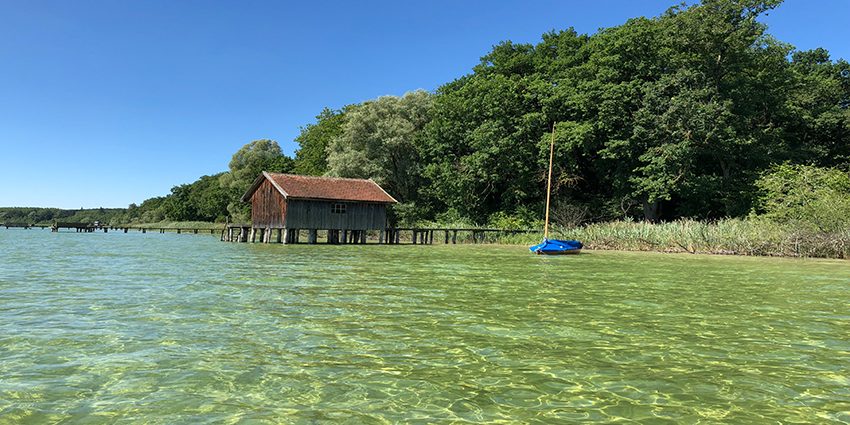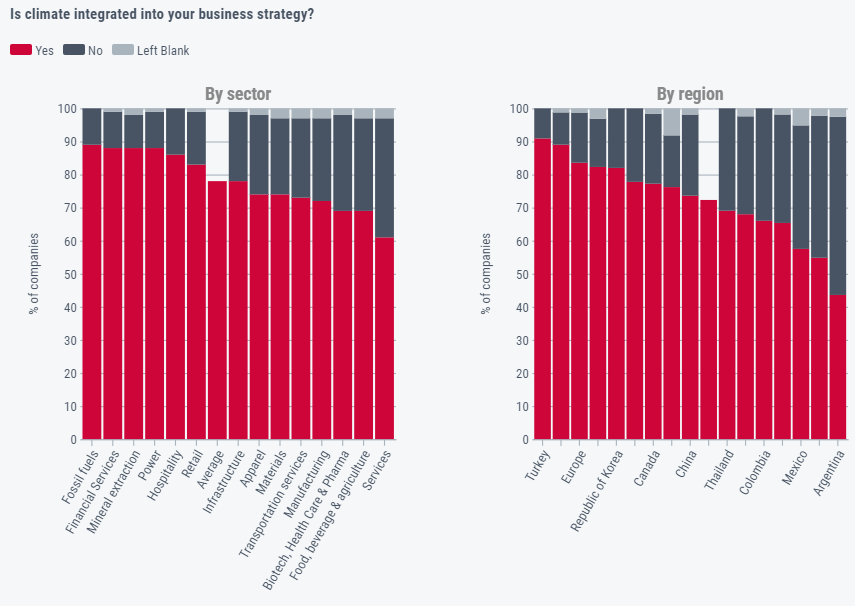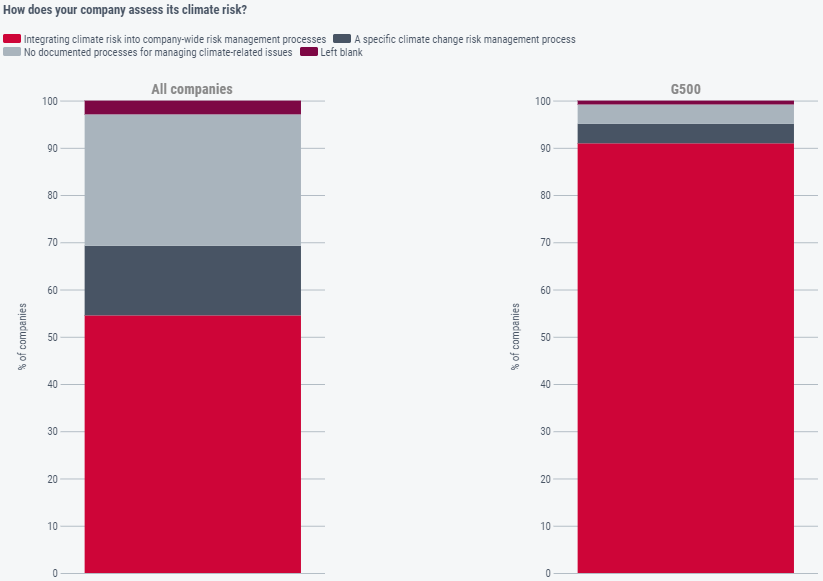Over the last years more and more investors are investigating how sustainable a company works before investing capital. This results in the direct need of a quantification method for such sustainability. Furthermore, those standardized methods create a base for comparisons between companies’ performances. One of the most common tools for such comparison is the CDP – (formerly known as Carbon Disclosure Project). In 2018, 6.937 companies from all over the world reported their Carbon-related emissions here. Each year, there is a detailed analysis of the participants published in the CDP Climate Change Research Report.
Within the CDP Climate Change Research Report, there are several breakdowns which we are right now also having a closer look at. The first interesting question already grants access to some interesting knowledge about the distribution of governance – the adoption of climate matters within the business strategy. For that, the CDP Climate Change Research Report groups the participating companies into sectors and regions.
Figure 1: Is climate integrated into your business strategy? (Source: CDP 2019)
72% of companies overall confirmed that they included climate into their business strategy. The frontrunners from a regional perspective are Turkish, South African and European companies. The worst performances (CDP Climate Change Research Report) came from Mexico, Brazil and Argentina.
More interestingly, the CDP Climate Change Research Report also investigated if companies not only have integrated the climate-related topics into their business strategy, but also if they conduct risk management to have a concrete decision-making tool for further development. Whilst 78% of companies already identified climate as a substantial point for future development, the identification of specific risks and the adoption of a company-wide climate risk identification process is not that far developed. Only 54,5% of all assessed companies said to have a company-wide integrated environmental risk management process in place. According to the CDP Climate Change Research Report, 14,7% answered to have a general environmental risk management process whilst 27,8% answered to not have such implemented (yet). 2,9% left that question blank. In comparison to that, out of the G500 companies (the 500 world’s largest companies by market cap), 91% had a full-blown company-wide climate risk identification process in place and only 4% said not to have any or only a specific process in place each.
Figure 2: How does your company assess its climate risk? (Source: CDP 2019)
Concluding those points, the final question investigated by the CDP Climate Change Research Report dealt with conducting a scenario analysis. This topic has been integrated into the questionnaire prominently in 2018. Scenario analysis can be seen as a key to evaluate the proper reduction paths for reaching a target which was established by setting certain assumptions as basis and see how those affect the performance over the years. 12% of all companies answered to have quantitative and qualitative scenario analysis in place, 3% said to have quantitative and 8% to have qualitative scenario analysis implemented. The by far biggest share of 19% (1.138 companies) answered to anticipate such analysis within the next two years.
As this point it can be seen as a crucial key-tool to successful sustainable company development, DFGE now provides help with the implementation of the TCFD-framework. Also, a special tool for companies with a set environmental targets (like for example a Science Based Target) has been developed by DFGE to show how business decisions in different measures affect the overall emission performance as well as the target reduction path. If you are interested in support on how to implement scenario analysis or want to have further information about the projection tool, feel free to contact us via or by phone on 08192-99733-20.
[1] CDP (2019): Global Climate Change Report 2018. https://www.cdp.net/en/research/global-reports/global-climate-change-report-2018 (retrieved 15.07.2019)











